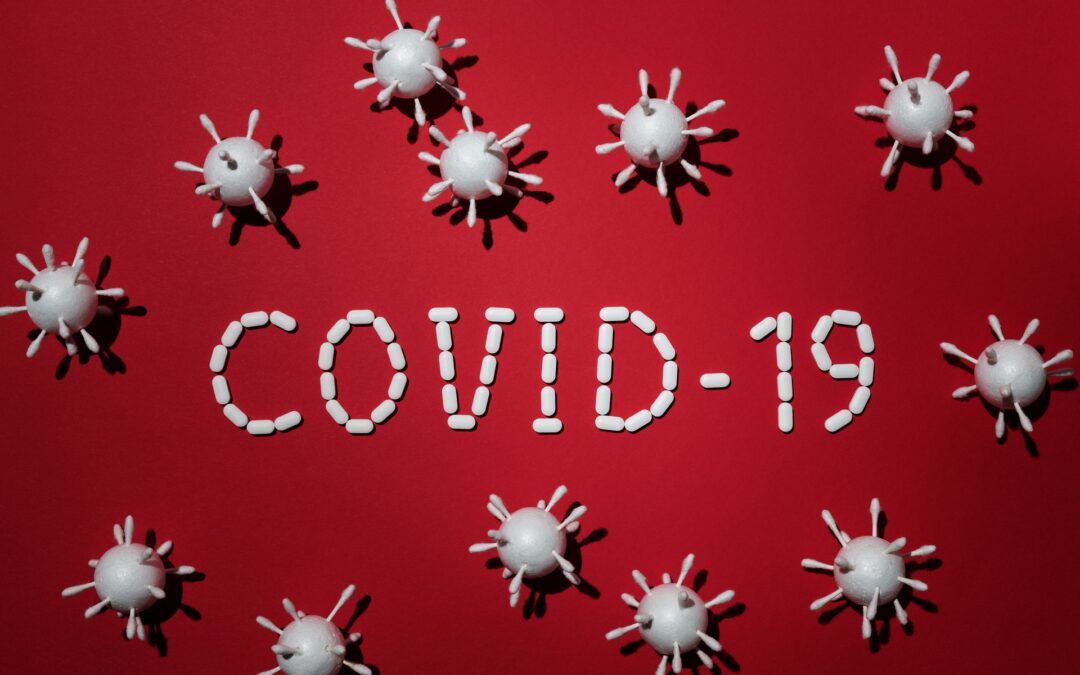COVID-19 has turned the world on its head over the last several months. A major problem we have faced since the beginning, is that it had already been spreading like wildfire for a few months since the end of 2019—before most of the world realized that it was time to take action against this respiratory virus. We’ve therefore been on the back foot from the very start.
Research has estimated that up to 80 percent of people (and it may be more) are completely asymptomatic with COVID-19. Not even a sneeze. This is actually a similar statistic to the Flu, and is common to many respiratory viruses and how they spread among populations. For most who are affected, coronavirus is a mild respiratory illness that people can recover from at home. For those who do unfortunately become seriously ill, we already know from the data that 3 of the biggest risk factors include; advanced age, other comorbidities including diabetes or immunosuppression, and obesity.
What this means on a biological level is that for the majority of people, the immune system has done its job and identified and killed coronavirus—stopping it from spreading within their bodies. We hope that these people, and the people who have already had it, have some degree of lasting immunity to COVID-19.
But here’s the rational and logical conclusion if we think about this:
Any virus which has an 80 percent asymptomatic rate is simply impossible to contain once it has spread.
The only way you can do so is to either keep people in lockdown or away from each other indefinitely with severe restrictions (no more gatherings, sports stadiums, concerts, large weddings, conferences), or test everybody in the country every couple of weeks. And even if those billions of dollars were available, it still wouldn’t work because no test we do is 100 percent sensitive so it would miss a lot of cases! In the hospital, I’ve seen many suspected patients return COVID positive, on their 3rd or 4th swab test!
Waiting for a vaccine? We all hope for a safe and effective shot, but let’s be scientifically realistic again. This won’t be the end of the story and magically make COVID-19 disappear, any more than the Flu vaccine has made influenza go away. Respiratory viruses mutate and rarely does a vaccine eradicate the illness.
This coronavirus has got us all in a trap. Start moving and resuming life again in 2 weeks, and it’ll start spreading in 2 weeks… do it in 2 months, and it’ll happen in 2 months… and in 2 years, and so forth… At some stage, people are going to have to return to their work, education and everyday lives.
There’s a fair chance that if you were to sample a large random group of people across the country right now, many would show up positive without having any symptoms whatsoever. Once a respiratory virus has spread, it’s often simply colonized in many people, ready to find its next host. It’s almost an impossible situation.
The most we can do if we think about this logically is mitigate risk, protect vulnerable groups, have our healthcare systems prepared and ready for if and when localized outbreaks occur, and boost our own immune systems by trying to eat a healthy diet, exercise, and stay in shape. Any doctor will tell you, that there’s a lot of lifestyle changes you can implement to dramatically lower your chances of becoming sick. But zero risk is impossible. As Tony Blair the former Prime Minister of the United Kingdom recently said: Coronavirus is something we are going to have to learn to live with. That’s the blunt truth, and any authority figure who claims that this virus can be completely contained or eliminated is either unfamiliar with how respiratory viruses operate, or worse, is lying to you.
. Suneel Dhand is a physician, writer, and YouTuber. He is Co-Founder at DocsDox. Follow him at Medstoic Lifestyle Medicine on YouTube and Instagram.
Suneel Dhand is a physician, writer, and YouTuber. He is Co-Founder at DocsDox. Follow him at Medstoic Lifestyle Medicine on YouTube and Instagram.


Suneel,
This is good information for your readership to know, if they don’t already.
It points to the immune system as we have said before. People that have good working immune systems have less problems usually and many are asymptomatic.
This is the article I put in our CCRC newsletter for residents:
DO WE HAVE MORE GERMS NOW THAN 80 YEARS AGO?
Growing up in the early 1940’s we had at least one bath night or maybe two per week. Bathtubs only – no showers. Clothes were washed with some frequency not that I remember how frequently. We children played outside all day and only washed up before dinner, in the one sink in the kitchen. (The one bathroom was upstairs)
Fast forward to a major medical center in New York City in the late 1950’s. A twelve-bed ward and one sink. Did staff wash their hands when going from patient to patient among those twelve beds? Of course not!!! No one got sick from infections – they had other health problems that caused their hospitalization or demise.
So, what has happened to all of us in the intervening years? We are now asked to wash our hands, wash our hands, wash our hands! Is it the bacteria/virus that has multiplied so tremendously or our bodies not being able to deal with this current onslaught that immobilizes us all as well as our economies? Perhaps the fear of germs plays a role. Have we brought this on ourselves?
Why, only seventy years ago or more when I was a youngster, germs didn’t seem to be very important. We had measles, chicken pox, strept throats, mumps, colds etc. without antibiotics to get us better. Our bodies took care of that. And yes, crowded urban housing arrangements were breeding grounds of infectious diseases and many children died early from them. It was though that if a child survived beyond five years of age they probably could live to see adulthood. Now we have good sanitation systems, vaccines and lives are longer. Germs now seem to be a greater threat than ever before. Why? Bacteria and viruses have always been part of our lives and ignored or dealt with. Are we now too clean? Too anti-bacterial everything?
My grandfather had a saying that ‘you had to eat a peck a dirt before you die.’ Maybe he was onto something.
When we raised our kids, did we make sure their hands were clean after they got off the floor or played outside with friends? I don’t think so.
The message is that these bacterial/viral threats that we face during our lifetime should be dealt with as we face them rather than try to prevent them. Why? Because they challenge our immune system, make it stronger and help us thwart off incursions from bacteria and viruses now and for the future because we have a stronger immune system that can help our bodies heal. We are never going to get rid of them and they certainly are more prolific and enduring than we are!
Are we contributing to this pandemic to prevent loss by trying to protect ourselves rather than challenge what the body can and will do – help us protect ourselves.
Think about it.
Agreed, that we aren’t going to get rid of it by vaccine or other…it is our own bodies and how we deal with them and our environment will tell the tale.
Susan, I really like all the points you have made in this thoughtful analysis. Thanks for this! Suneel